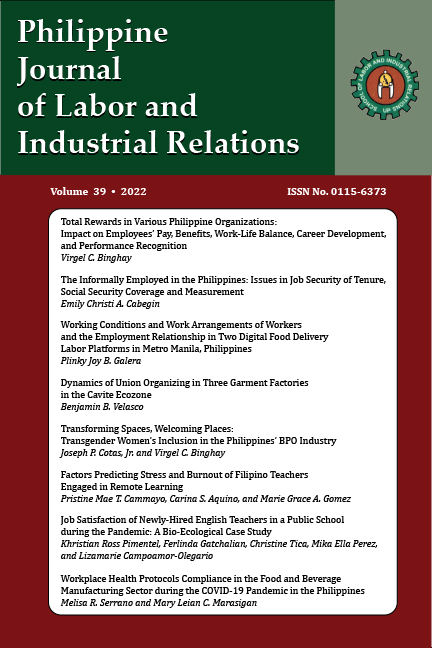Working Conditions and Work Arrangements of Workers and the Employment Relationship in Two Digital Food Delivery Labor Platforms in Metro Manila, Philippines
Abstract
This study explores the nature of work, employment, working conditions, and applicability of Philippine labor laws and policies to workers, along with the attainment of decent work using identified indicators in two food delivery platforms in the industry, particularly foodpanda and GrabFood.
Primary data gathered through a survey and focused group discussions established the existence of an employment relationship between the platforms and food delivery riders and bikers upon the application of the two-tiered test. Foodpanda and GrabFood own the applications and algorithms that are used to control the manner and means by which workers conduct their work, their behavior at work, and work output through methods which include, but are not limited to an incentives system and customer rating system. Riders and bikers are labeled as independent contractors so they do not have social security and cannot exercise their right to organize and bargain collectively. Thus, GrabFood and foodpanda riders and bikers suffer from decent work deficits.
The findings of the study point to the need to regulate platform work in the Philippines. The core of this regulation should be a legal presumption that an employment relationship exists where one or more relevant indicators is present, as adopted in various countries that have passed laws on platform work and the proposed directive of the European Parliament and the European Council on Improving Working Conditions in Platform Work. The continued expansion of digital platform companies and increasing number of platform workers in the country underscore the urgency of this regulation.


